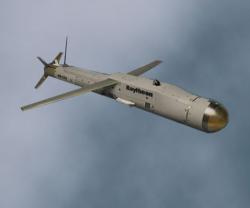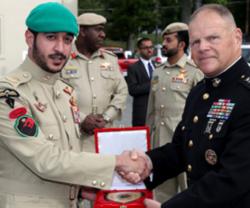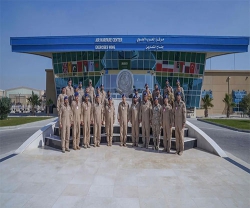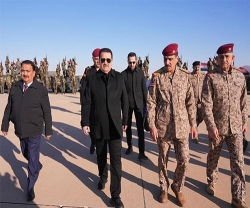Afghanistan and the United States have signed a long-awaited security pact that will allow U.S. forces to remain in the country past the end of year, the Associated Press (AP) reported.
At a Tuesday ceremony in the capital, Kabul, newly appointed National Security Adviser Mohmmad Hanif Atmar signed the document along with U.S. Ambassador James Cunningham (photo).
This strategic agreement, long sought by the Obama administration, was one of the first acts of the new administration of President Ashraf Ghani who was sworn into office a day earlier.
Ghani told the assembled crowd that the agreement signaled a fundamental shift in the country's relations with the world. “This agreement is only for Afghan security and stability,” he noted.
The agreement allows for a continued U.S. troop presence in Afghanistan after nearly 13 years of war and with the mandate of U.S.-led NATO coalition forces expiring at the end of the year.
The Obama administration has said up to 10,000 soldiers would remain behind to continue training, advising and equipping Afghan soldiers and police, and to carry out counter-terrorism operations.
The signing of the agreement, known as the BSA, fulfills a major campaign promise by Ghani, who hopes it will repair relations with the U.S.
The agreement was due to be signed last year after a grand assembly of influential Afghans approved the text, but President Hamid Karzai declined to sign it. Karzai argued that U.S. Forces had not done enough to curb civilian casualties and raids on civilians’ homes, although critics said the outgoing president was trying to maintain leverage over the United States in his final months in office.
Although many Afghans support the continued U.S. military presence, saying it is necessary to maintain security as Taliban insurgents mount offensives in northern and southern Afghanistan, the agreement has raised some concerns because it bars Afghan courts from trying American soldiers for alleged abuses.
The strategic pact allows the U.S. to hold a civil or criminal trial “or take other disciplinary action, as appropriate, in the territory of Afghanistan” in the case that a U.S. soldier is accused of a crime.
The agreement does not require U.S. Forces to intervene if Afghanistan comes under foreign attack.
Source: AP; Los Angeles Times






















